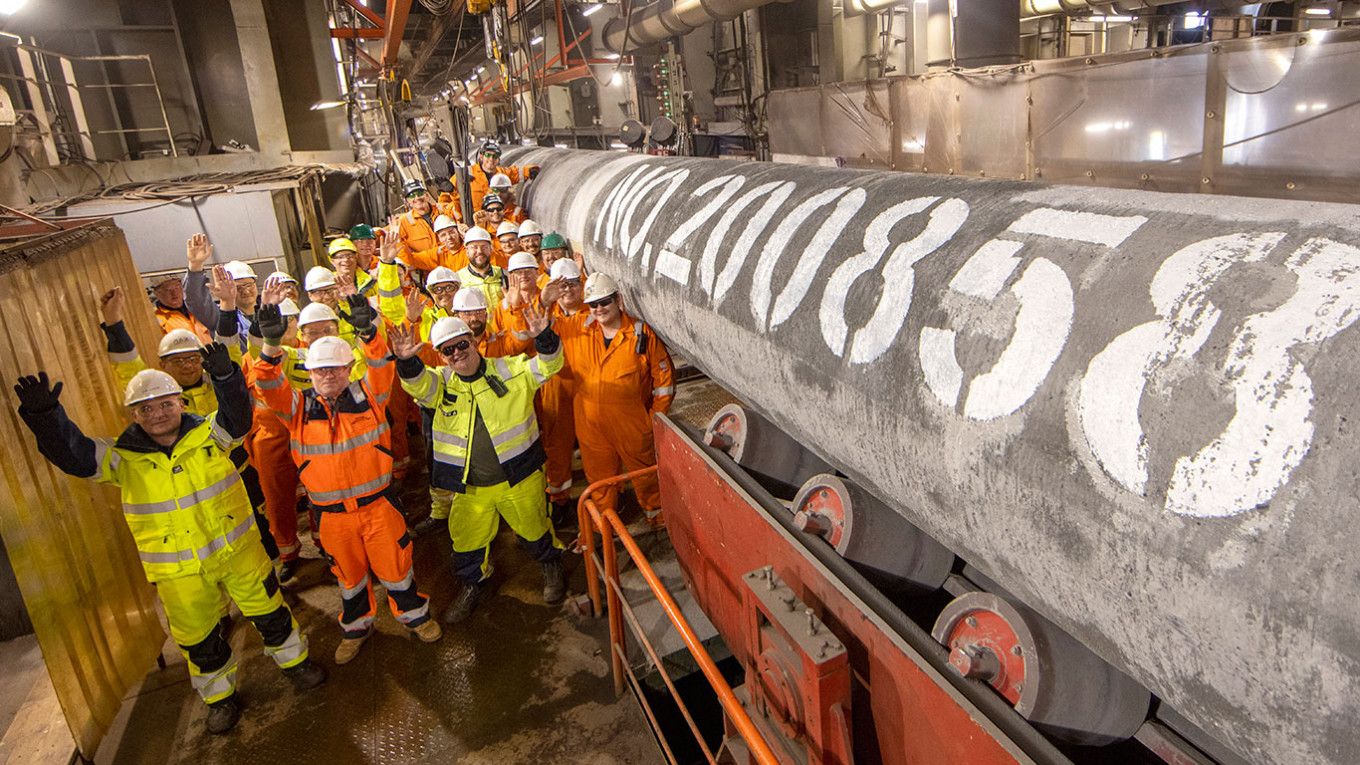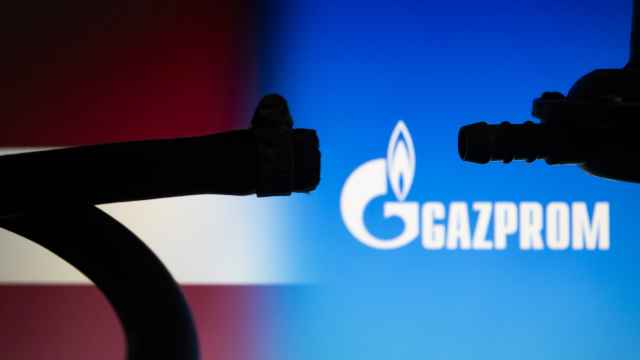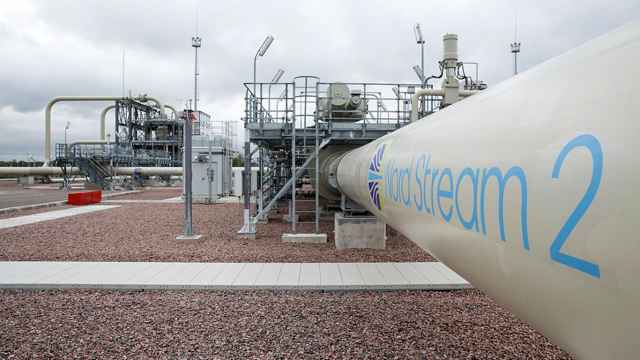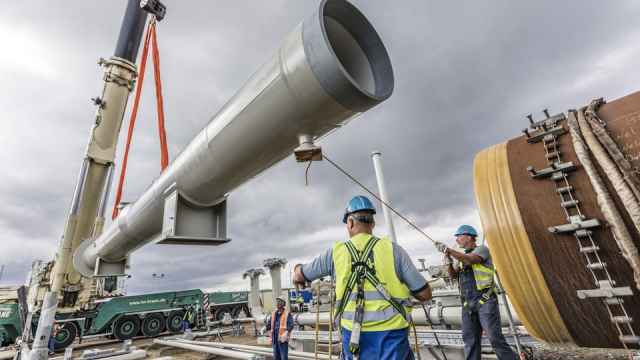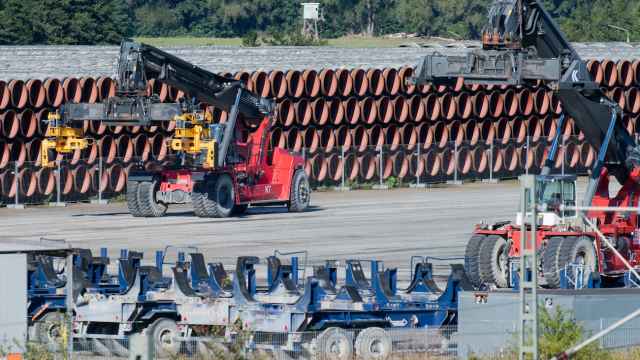Moscow announced Friday the completion of the controversial Nord Stream 2 gas pipeline, which critics say will increase Europe's dependence on Russian gas and bypasses a key EU ally, Ukraine.
Nord Stream 2 is expected to double natural gas supplies from Russia to Germany, but it has divided European capitals and raised tensions between the bloc and Washington.
The head of the Gazprom energy giant, Alexei Miller, announced Friday that construction was "fully completed," a company statement said.
A key controversy is that the pipeline diverts supplies from an existing route through Ukraine and is expected to deprive the EU's partner of crucial transit fees from Russia.
Ukraine — in conflict with Russia since Moscow's 2014 annexation of Crimea — has warned Europe that the pipeline could be used by Moscow as "a dangerous geopolitical weapon."
"Ukraine will fight this political project, before and after its completion and even after the gas is turned on," Sergiy Nykyforov, the spokesman of Ukraine's President Volodymyr Zelenskiy, told AFP.
But Russia's Foreign Ministry spokeswoman Maria Zakharova said critics should end efforts to block the project and instead agree "mutually beneficial terms" for its operation.
"It is clear to everyone, including critics of Nord Stream 2 and those who desperately opposed its construction, that it cannot be stopped," Zakharova said on the Telegram messenger app.
Kremlin spokesman Dmitry Peskov called for the project to be launched "as soon as possible" and dismissed criticism, saying that "everyone" would benefit from it.
Running from Russia's Baltic coast to northeastern Germany, the underwater, 1,200-kilometer (745-mile) pipeline follows the same route as Nord Stream 1, which was completed over a decade ago.
Like its predecessor, Nord Stream 2 will be able to pipe 55 billion cubic meters of gas per year to Europe, increasing the continent's access to relatively cheap natural gas at a time of falling domestic production.
U.S. pushback
Gazprom has a majority stake in the 10-billion-euro ($12 billion) project. Germany's Uniper and Wintershall, France's Engie, the Anglo-Dutch firm Shell and Austria's OMV are also involved.
Former chancellor Gerhard Schroeder serves as chairman of the Nord Stream's shareholders committee.
Russia and Germany insist Nord Stream 2 is a purely commercial project, but analysts disagree about the project's economic benefits.
A 2018 report by German think-tank DIW said it was unnecessary and undertaken based on forecasts that "significantly overestimate" demand in Germany and Europe.
Germany — Europe's top economy — imports around 40% of its gas from Russia, and Berlin believes the pipeline has a role to play in Germany's transition away from coal and nuclear energy.
The United States has warily given the green light for the project.
Like predecessors Barack Obama and Donald Trump, U.S. President Joe Biden objected to the project, saying it is a bad deal for Europe and a security risk.
But critics of this argument pointed out that the U.S. also wants to boost sales of liquefied natural gas (LNG) to Europe.
U.S. sanctions on Russian vessels laying the pipeline succeeded in delaying Nord Stream 2, angering Germany.
But Biden, eager to rebuild transatlantic ties that were badly strained by Trump, unexpectedly waived sanctions in May on the Russian-controlled company behind the project.
Analysts saw the move as an olive branch to Berlin, whose support Washington is counting on in the face of other challenges, including a rising China.
Zelenskiy has said the sanctions waiver is a win for Russian President Vladimir Putin.
Reaffirming support for Ukraine, Biden hosted Zelenskiy at the White House in early September.
After the meeting, Zelenskiy told reporters Biden had assured him the United States would impose sanctions on the pipeline if there were "violations" from Russia that would create problems for Ukraine's energy security.
A Message from The Moscow Times:
Dear readers,
We are facing unprecedented challenges. Russia's Prosecutor General's Office has designated The Moscow Times as an "undesirable" organization, criminalizing our work and putting our staff at risk of prosecution. This follows our earlier unjust labeling as a "foreign agent."
These actions are direct attempts to silence independent journalism in Russia. The authorities claim our work "discredits the decisions of the Russian leadership." We see things differently: we strive to provide accurate, unbiased reporting on Russia.
We, the journalists of The Moscow Times, refuse to be silenced. But to continue our work, we need your help.
Your support, no matter how small, makes a world of difference. If you can, please support us monthly starting from just $2. It's quick to set up, and every contribution makes a significant impact.
By supporting The Moscow Times, you're defending open, independent journalism in the face of repression. Thank you for standing with us.
Remind me later.


